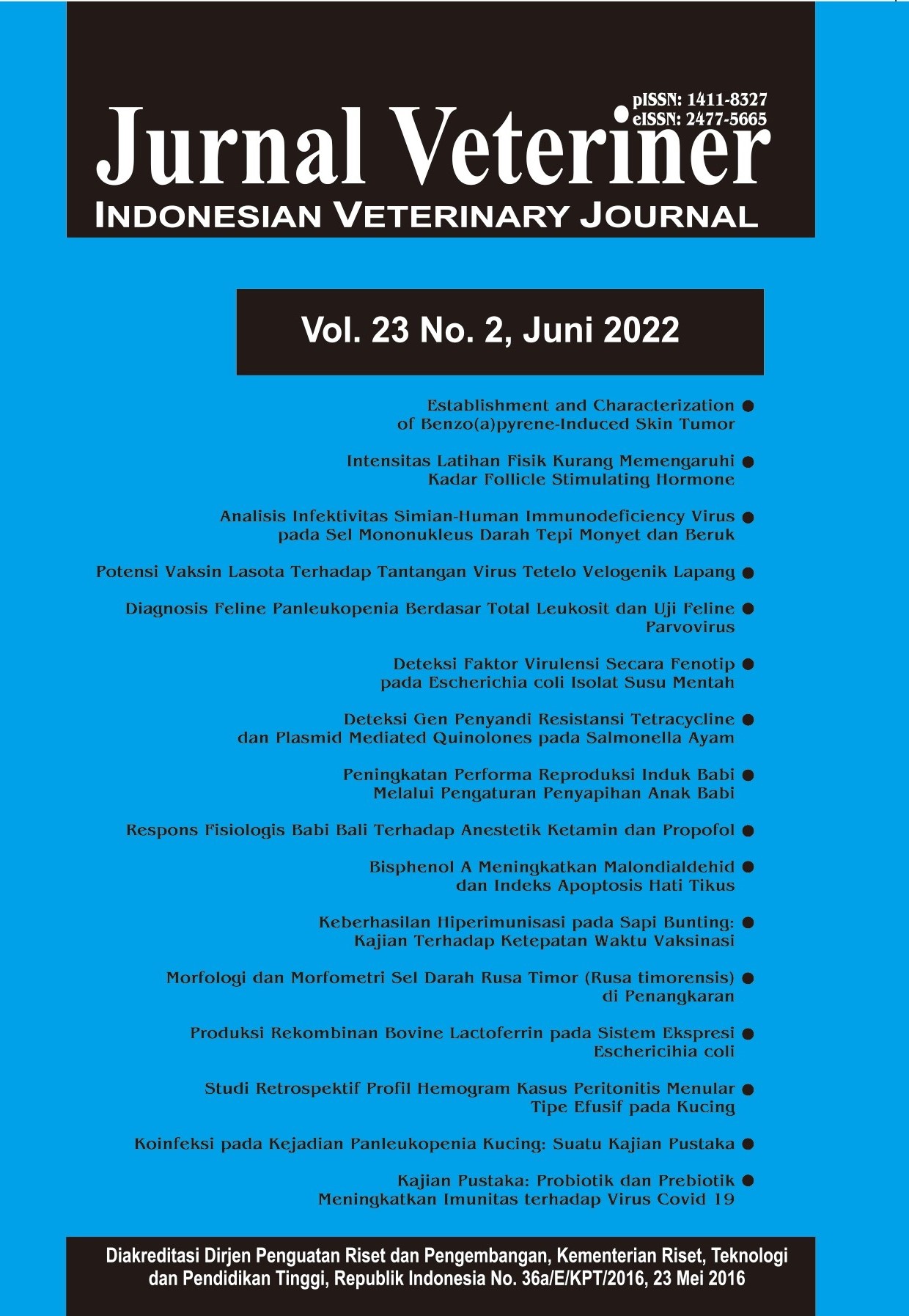Studi Penggunaan Obat Anti Ektoparasit di Salah Satu Klinik Hewan Kota Bogor Tahun 2017 dan 2018
Abstract
The anti-ectoparasitic drug is the type of medication used to treat infections caused by various kinds of ectoparasites. The use of this drug needs to be evaluated through the drug use evaluation program (EPO) to ensure the rational and effective application of this drug. The purpose of this research is to examine the anti-ectoparasitic drugs that are often used and its effectivity in cases of infections caused by ectoparasites, in this study that is infection caused by Ctenocephalides felis fleas which cause the Flea Allergic Dermatitis and Sarcoptes scabiei mites which cause Scabies in cats and dog. This is a descriptive study using medical records from 127 patients who have infections caused by ectoparasites. The evaluation of this drug use is done descriptively by comparing data results and literatures. This study showed the use of anti-ectoparasitic drugs in animals with Flea Allergic Dermatitis in 20 times applications; 15 times using Imidacloprid 10% combined with Moxidectin 2.5% and 5 times using anti-ectoparasit ivermectin, while in animals with scabies the drug are used 107 times; 76 times using anti-ectoparasitic ivermectin, 26 times using Permethrin 5% and 5 times using Imidacloprid 10% combined with Moxidectin 2.5%. Imidacloprid 10% combined with Moxidectin 2.5% is the most used anti-ectoparasitic drugs to treat cases of Flea Allergic Dermatitis, while ivermectin is most used to treat cases of Scabies.
Keywords: anti ectoparasite, evaluation of drug use, ivermectin, Imidacloprid 10% and Moxidectin 2.5%



















